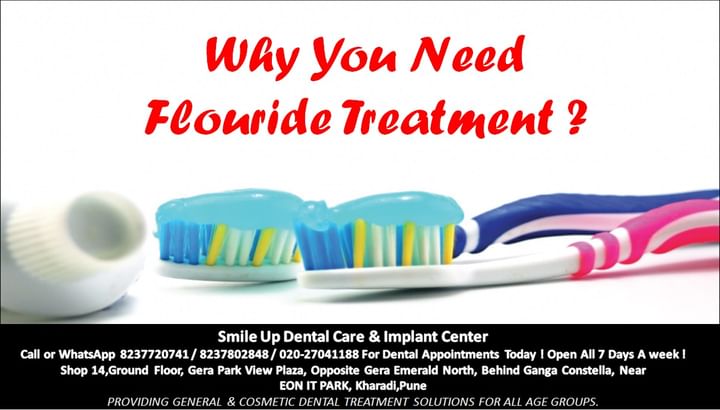Fluoride Treatments - "Extra Protection for Your Teeth"
Dental caries (tooth decay) is caused by acid-producing bacteria that collect around the teeth and gingivae (gums) in a sticky, clear film called “plaque.” Without good daily oral hygiene and regular dental visits, teeth become more vulnerable to caries. Brushing twice a day and cleaning between teeth with floss or another type of interdental cleaner help remove plaque. Regular dental examinations and cleanings also are important for keeping teeth healthy.
Another key to good oral health is fluoride, a mineral that helps prevent caries and can repair teeth in the very early, microscopic stages of the disease.
Fluoride can be obtained in two forms: topical and systemic.
TOPICAL AND SYSTEMIC FLUORIDES
Topical fluorides are applied directly to the tooth enamel. Some examples include fluoride toothpastes and mouthrinses, as well as fluoride treatments in the dental clinic.
Systemic fluorides are those that are swallowed. Examples include fluoridated water and dietary fluoride supplements. The maximum reduction in dental caries is achieved when fluoride is available both topically and systemically.
Dentists have used in-office fluoride treatments for decades to help protect the oral health of children and adults, especially patients who may be at a higher risk of developing caries. Some factors that may increase a person’s risk of developing caries include the following:
- poor oral hygiene;
- active caries;
- eating disorders;
- drug or alcohol abuse;
- lack of regular professional dental care;
- active orthodontic treatment combined with poor oral hygiene;
- high levels of caries-causing bacteria in the mouth;
- exposed root surfaces of teeth;
- decreased salivary flow, resulting in dry mouth;
- poor diet; dexisting restorations (fillings); tooth enamel defects;
undergoing head and neck radiation therapy.
PROFESSIONAL FLUORIDE TREATMENT
If you, or a family member, are at a moderate-to high risk of developing caries, a professional fluoride treatment can help. The fluoride preparation used in the "Smile Up Dental Care & Implant Center " dental clinic is a much stronger concentration than that in toothpastes or fluoride mouthrinses that may be available in a store or at a pharmacy.
Professional fluoride treatments generally take just a few minutes. The fluoride may be in the form of a solution, gel, foam or varnish. Typically, it is applied with a cotton swab or brush, or it is used as a rinse or placed in a tray that is held in the mouth for several minutes.
After the treatment, you may be asked not to rinse, eat or drink for at least 30 minutes to allow the teeth to absorb the fluoride and help repair microscopic carious areas.
Depending on your oral health status, fluoride treatments may be recommended every three, six or 12 months. Your dentist also may recommend additional preventive measures if you are at a moderate or high risk of developing caries. These measures may include over-the-counter or prescription therapeutic products such as fluoride mouthrinses, gels or antibacterial mouthrinses.



+1.svg)
